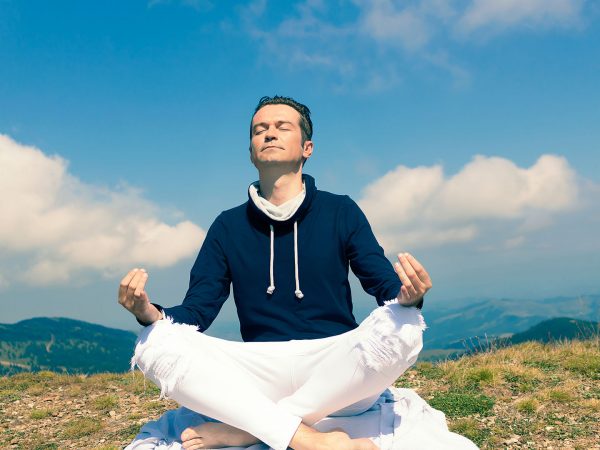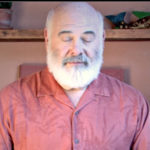A New Breathing Technique?
What’s your opinion of the Wim Hof Method?
Andrew Weil, M.D. | April 28, 2022

I think this breathing technique — which stems from the routine of Wim Hof, a Dutch athlete — can be useful when practiced appropriately and may help influence health in positive ways.
Also known as “The Iceman,” Wim Hof is an extreme athlete and motivational speaker renowned for his ability to withstand freezing temperatures. His feats include swimming underneath ice and completing a half-marathon through snow and ice while barefoot. Hof attributes these accomplishments to a regimen he developed with his son, which they call the Wim Hof Method. There are three pillars to the method: breathing, cold therapy, and commitment.
The first involves practicing breathing exercises controlled deep breathing, hyperventilation, and periods of holding your breath. The second, cold therapy, involves exposure to extremely cold temperatures for several minutes — typically by means of a cold shower or ice bath. The third, commitment, uses meditation and other techniques to develop and increase willpower.
Hof believes that, when followed regularly, this approach can have powerful effects. Specifically, he claims that it can help people control their nervous, immune, and cardiovascular systems, leading to improvements in mood, sleep, focus, and immunity. In a series of landmark studies, researchers found that the Wim Hof Method was associated with improved oxygen delivery during exercise, reductions in altitude sickness and flu-like symptoms, and anti-inflammatory effects.
We teach the Wim Hof Method to Fellows in the Andrew Weil Center for Integrative Medicine at the University of Arizona. I think the approach is worthwhile, may benefit mental and physical health, and is safe when practiced as directed. Keep in mind that the breathing exercises, cold water immersion, or both can trigger feelings of anxiety and panic in some people. This is considered normal and should pass with practice. You should check with your doctor before trying the regimen, particularly if you have certain medical conditions (such as epilepsy, migraine, heart disease, or high blood pressure) or are pregnant.
Andrew Weil, M.D.
Source:
Kox, Matthijs, et al. (2014). Voluntary activation of the sympathetic nervous system and attenuation of the innate immune response in humans. Proceedings of the National Academy of Sciences of the United States of America. 111. 10.1073/pnas.1322174111.
https://www.pnas.org/doi/full/10.1073/pnas.1322174111












